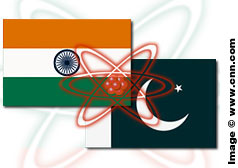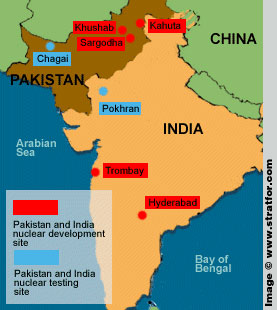

 |
No. WAS/AMB/Newsletter/7 June 2, 2002 Dear friend, I write to you at a time when India is at a decisive point in its battle against state-sponsored terrorism. The media has in recent days focused on imminent conflict between India and Pakistan. As a peace-loving democratic nation, war is not an option that India would choose easily. We must recognise, however, that a proxy war is already being waged against our |
|||||
| people by our neighbouring state, and there is a limit to our tolerance. Over the last two decades, more than sixty thousand innocent people in India have been killed by terrorists sponsored, trained and financed by official agencies in Pakistan. Most of this terrorism has been concentrated in the states of Punjab and Jammu and Kashmir, but there have been terrorist acts in other parts of India also. The perpetrators of the Mumbai bomb blasts of 1993 and the hijackers of the Indian Airlines flight from Kathmandu in December 1999 continue to receive refuge in Pakistan. Most of the groups responsible for acts of terrorism against India have close links to the Al-Qaeda organisation, which masterminded the horrendous attacks against the United States on September 11 last year. It is clear, therefore, that both the United States and India are targets of the same vicious ideology that uses terror to undermine the foundations of our democratic and secular societies. After September 11, Pakistan made a tactical shift by withdrawing its support to the Taliban and Al-Qaeda, hoping in the process to immunise itself from international condemnation of its continuing sponsorship of terrorism against India. |
||||||
| The suicide attack against India's Parliament on December 13, marked a severe escalation in Pakistan's policy of state-sponsored terrorism against India. Had it succeeded, it would have wiped out our entire political leadership who were present in Parliament at that time. The response of our people was, "enough is enough." Our armed forces were mobilised on the border and Line of Control to deliver a befitting response, when required, to those promoting terrorism as a principle of state policy. Even in the face of such great provocation, however, India's preference was to act with responsibility and restraint. Our first recourse was to diplomatic and economic measures in the hope that Pakistan would, even then, honour its international obligations under UN Security Council Resolution 1373 and put an end to terrorism being perpetrated from the territory under its control. We accepted at face value the commitments made by the President of Pakistan in his speech of January 12, but decided we would judge him by his actions rather than his words. |
 |
|||||
| Our minimum expectations were that Pakistan would put an end to the infiltration of cross-border terrorism in our country and hand over to us for trial, those who had committed acts of terrorism in India and had then sought refuge in Pakistan. We gave Pakistan a list of twenty such terrorists, most of whom are Indian nationals. Regrettably, the promises made by President Musharraf were short-lived. Most of the terrorist leaders and elements detained by the government of Pakistan in January have since been released. Terrorist camps, that were closed after the January 12 speech, have mostly been re-opened and relocated in Pakistan-occupied Kashmir (PoK). About seventy to seventy-five camps are currently active, and Al-Qaida activists who crossed over from Afghanistan to Pakistan have been located in PoK for eventual infiltration into India. About 3,000 to 3,500 militants are believed to be undergoing training in these camps. There has been no action by Pakistan on the list of twenty. On May 14, terrorists dressed in army uniform, attacked civilians traveling in a passenger bus on the Pathankot-Jammu highway and thereafter went on to attack people in an army encampment at Kaluchak in Jammu district. Thirty two people were killed including eleven women and eleven children. The identity of the three terrorists, who were also killed by our security forces has since been established. They were all Pakistani nationals. In the week following that incident, 60 more violent incidents were reported in Jammu & Kashmir. A particularly heinous act was the murder of Abdul Ghani Lone, a moderate Kashmiri politician who was known for his independent views and who had only recently visited the United States. Our patience has now reached breaking point. In a unanimous resolution on May 17, the two Houses of India's Parliament, expressed our people's determination to fight terrorism from across our border in a united and determined manner. President Musharraf's speech of May 27 was, in the words of our External Affairs Minister Mr. Jaswant Singh, "disappointing and dangerous." It is merely a repetition of earlier unfulfilled assurances, and his belligerent tone betrayed his real intentions. Our reaction has been measured and firm. We will judge Pakistan and its leadership only by its actions. We will act decisively to defend our sovereignty and territorial integrity. The US Administration has been most understanding of our position. After all, we are two democratic countries that have both suffered immensely from the ravages of terrorism. President Bush has publicly called upon President Musharraf to "show results" and to "perform" in implementing his commitment to stop cross-border terrorism. There are, however, voices in some sections of the media and elsewhere which, while sympathetic to our plight, tend to confuse Pakistan's sponsorship of terrorism with the Jammu and Kashmir issue. There is no linkage between the two, and there can be no political justification for acts of terrorism. Pakistan cannot be allowed to gain the impression that its cooperation with the US on Afghanistan allows it the liberty to pursue its sponsorship of terrorism against India unhindered. The terrorists who are active against India are the same ones who are targeting the United States. We need to sensitise those around us to the reality of the situation. Only strong international pressure on Pakistan can help avert the threat of conflict. I look forward to your cooperation in this endeavour that affects all Americans and Indians alike. Yours sincerely (Lalit Mansingh) |
||||||
| xxx | ||||||
|
RETURN TO
www.tibetanliberation.org! Tibetan Liberation Theatre Homepage |
||||||